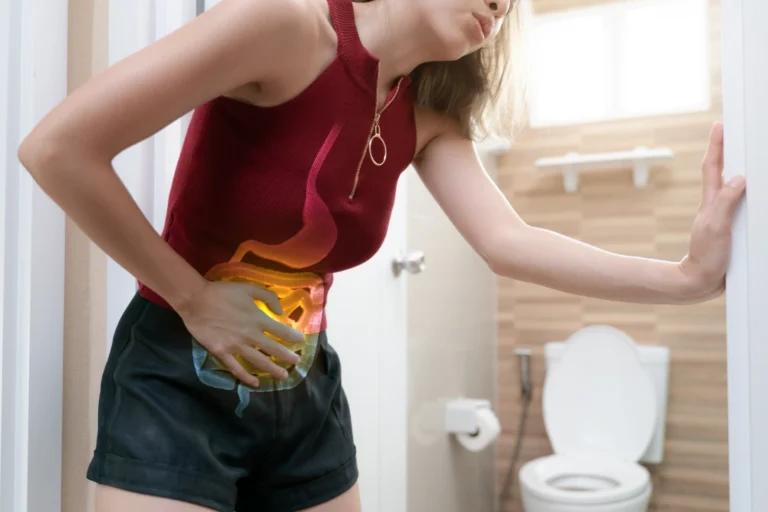
Urinary retention is the inability to pass urine. It is a relatively uncommon occurrence however, when it does occur, healthcare providers should investigate the underlying causes thoroughly. One condition that is often overlooked as a potential cause is chronic constipation – a common issue among children.
Here, we will look at the link between constipation and urinary retention, its causes and how to treat this health concern.
Constipation and urinary retention in children
Constipation is a widespread problem among children, with studies estimating a prevalence as high as 30% in the pediatric population. Acute urinary retention, while less common, is still a significant concern, affecting an estimated 53 children between the ages of 6 months and 17 years of age, in a survey conducted in an American hospital from 1993 to 2000.
Causes for constipation and urinary retention
Several factors can increase the risk of a child developing urinary retention from constipation:
- Delayed bowel habit: Children with chronic constipation, characterized by hard stools and difficulty with bowel movements, are more prone to developing urinary retention. The physical pressure of the stool against the urethra and bladder may cause the body to hold in urine. Delay and changes in normal bowel habits is a significant risk factor
- Neurological diseases: Medical conditions affecting the nervous system, such as spinal cord injury or bladder problems can disrupt the joint functioning of the bladder and rectum, increasing the chance of urinary retention
- Structural abnormalities: Malformations, like ectopic kidneys or uterine/vaginal abnormalities, may also contribute to the development of urinary retention, particularly alongside constipation
Signs of constipation-related urinary retention
The signs and symptoms of constipation-related urinary retention can be quite varied, but some common signs and symptoms include:
- Inability to voluntarily urinate for more than 12 hours
- Abdominal pain or discomfort
- Distention (stretching) of the bladder
- Urinary incontinence and urinary urgency
- History of chronic constipation with hard, dry, and infrequent bowel movements
Diagnosis
When a child presents with acute urinary retention, healthcare providers typically carry out:
- Medical history: Take a detailed history, including the duration and characteristics of the child’s bowel habits, previous constipation diagnoses, and any related symptoms
- Physical examination: Performing a physical examination, focusing on the abdomen and genital area to assess for a distended bladder or other abnormalities
- Imaging studies: Ordering plain abdominal radiographs, can provide valuable information about the presence of abnormalities
- Laboratory tests: Collecting urine samples for urinalysis and culture to rule out urinary tract infections or other underlying conditions
Treatment
The primary goal is to address the underlying constipation and restore normal bowel function. This typically involves a varied approach, including:
- Remove trapped stool from rectum: Start immediate measures to remove stools by using glycerin enemas or other laxative therapies
- Use of laxatives: Prescribing ongoing laxative medication, such as mineral oil or osmotic laxatives, to maintain regular and soft bowel movements
- Dietary changes: Recommending dietary changes to increase the child’s intake of fiber-rich foods and fluids, which can help to prevent and manage constipation
- Behavioral changes: Educating the child and their family on the importance of establishing a regular bowel habit and providing guidance on toilet training and other behavioral strategies
- Follow-up: Closely monitoring the child’s progress, adjusting treatment as needed, and ensuring regular follow-up visits to maintain optimal bowel and bladder function
The impact
Constipation and urinary retention can have a significant affect on a child’s overall health and well-being. Beyond the immediate discomfort and disruption to daily activities, this condition can also lead to:
- Recurrent Urinary Tract Infections (UTIs): The presence of a distended, poorly emptying bladder increases the risk of bacterial multiplying and urinary tract infections
- Bladder and kidney damage: Chronic urinary retention can cause significant stretching (distension) and damage to the bladder
- Psychological and behavioral Issues: The embarrassment and disruption caused by urinary incontinence or urinary retention can negatively impact a child’s self-esteem, social interactions, and overall quality of life
- Developmental delays: In severe cases, constipation and urinary retention may contribute to delays in a child’s physical, cognitive, and social development
The right approach
Effectively managing constipation-induced urinary retention in children often requires various healthcare professionals to be involved, including:
- Pediatricians: Responsible for the overall care, as well as the initial evaluation and diagnosis
- Pediatric Gastroenterologists: Specialized in the diagnosis and treatment of gastrointestinal conditions, such as chronic constipation
- Pediatric Urologists: Experts in the treatment and management of urinary tract disorders, including those related to constipation
- Pediatric Nurses: Provide essential support in patient education and ongoing monitoring of the child’s progress
- Dietitians: Assist in putting together personalized dietary plans to address constipation and promote overall gastrointestinal health
- Physical Therapists: May be involved in pelvic floor muscle training and other rehabilitation strategies to improve bladder and bowel function
Prevention and early intervention
The importance of preventive measures and early intervention cannot be overstated. Healthcare providers should:
- Promote awareness: Educate parents, caregivers, and the general public about the connection between constipation and urinary retention, emphasizing the need for prompt treatment of constipation in children
- Encourage regular bowel habits: Guide on establishing and maintaining healthy bowel habits, including the importance of a fiber-rich diet, adequate fluid intake, and regular toilet training
- Early diagnosis: Keep alert for signs of constipation and urinary retention, and seek treatment for any concerns quickly
Conclusion
The link between constipation and urinary retention in children is a critical, yet often overlooked, aspect of pediatric healthcare. Understanding the underlying causes, recognizing the risk factors, and seeking help from healthcare providers can effectively address this disruptive condition.
Sources
- European Journal of Gastroenterology & Hepatology
- Avoid constipation for the Bladder – Bladder & Bowel Community
- Acute urinary retention in a pre-school girl with constipation – PMC
Medical Disclaimer
NowPatient has taken all reasonable steps to ensure that all material is factually accurate, complete, and current. However, the knowledge and experience of a qualified healthcare professional should always be sought after instead of using the information on this page. Before taking any drug, you should always speak to your doctor or another qualified healthcare provider.
The information provided here about medications is subject to change and is not meant to include all uses, precautions, warnings, directions, drug interactions, allergic reactions, or negative effects. The absence of warnings or other information for a particular medication does not imply that the medication or medication combination is appropriate for all patients or for all possible purposes.









